Long taken at the truth - a few remarks about Chernobyl.
The Game of Thrones just ended, the viewers almost automatically switched to the next show on HBO. This time, it did not take place in distant lands, only in our yard, both historically and geographically. Chernobyl, is the hit of this season, the highest rated mini series production on Imdb, a series about which historians, critics and physicists speak. Reactions break down from controversy to admiration. And I wonder what this story has in itself that seduced viewers. And why in this season.
At first, an observation that may seem secondary, but for me it is an intriguing phenomenon. It is not without a reason that I mentioned Game of Thrones from HBO, a series that caught attention one week before the premiere of Chernobyl. In Game of Thrones, the most important seemed suspense, surprise, turn of action and the general fear that someone would surprise us with the ending. Meanwhile, a moment later, the screens attract a story in which everything is known. Even when the most disastrous effects of a catastrophe are made, the viewer realizes that they will not happen. When in the first episodes of struggle with the time and range of the disaster, we know that it is largely won. When we see firefighters called to fire, we realize that their fate is sealed. Chernobyl perfectly shows that a well-told story does not have to show us anything that we do not know, does not have to plant a suspense, and hide what will happen next. This is a perfect example of how the method of seducing the viewer with the twists and turns of the story, or suspending the story just before the next season, developed over the years is not necessarily the only way to tell a good story. And knowing the ending that some viewers fear so much does not necessarily take pleasure in watching. Although it probably was not the intention of the creators of Chernobyl, the series perfectly shows that there are really a few more ways of attracting the viewer's attention than hiding from him who will survive and who will perish.
At the same time, immediately after the premiere of Chernobyl, there appeared voices from various, mainly scientific circles, that too much in the creation of a dramatic narrative was devoted to historical truth. According to critics, re-creating the disaster exactly as it happened stands above the dramaturgy of the story. Especially that, as some say - improperly taking away the content of the series may discourage atomic energy, completely overpriced. I must admit honestly, I'm somewhat surprised that this obsessive search for the truth came out with Chernobyl, because I do not know of a single historical film, including a disaster-reproducing film that would not allow itself to deviate from the facts. Mainly because the dramaturgical narrative is completely different from real life and requires the scriptwriters to draw up events and show the scale of danger so that the viewer will feel some emotions. Hence, dramatic films are not considered as equal to documents (which also select facts and put them into some attractive narratives for the viewer or creator). Of course, if someone on the basis of this series starts to be afraid of atomic energy it will be unpleasant, although the series itself is not present against atomic energy (which can be seen in the last episode). No less what surprised me the most, or maybe even saddened, was the reading of the series about the Chernobyl catastrophe as ... a series about the Chernobyl disaster. Because this series is not necessarily about it. The Chernobyl tragedy serves rather as a starting point, even interesting or attractive decoration, but in total it is not about this.
Here the question arises. Why do we recall stories of great disasters or failures. Usually because we see in them a commentary on human nature. The sinking of the Titanic is not a voice against long-distance shipping, but rather against human pride and non-compliance with health and safety rules, moreover, in almost every catastrophic movie there is a voice of reason ignored by people who know better. Returning to tragic situations usually means that we either try to give meaning to what happened or to learn a lesson that goes beyond this one event. It is an assumption that our failures, defeats and tragedies speak of human nature no less, and even more than successes, that there is a truth in them that can be drawn. It is thanks to this that we are able to extract the tragedy from the cage of some macabre entertainment in which we derive a strange even for us the pleasure of watching suffering that will not affect us. Though it is a bit of an entertainment to watch real human dramas. Even if we do not want to admit it ourselves.
In the case of Chernobyl there is little doubt that the creators use the nuclear power station disaster to show how individuals operate in a society full of hypocrisy, fear, lies, coercion. In some aspects, this is the story that atomic reactors are safe and that atomic energy is beautiful. What is problematic is people and the world in which they live. Especially the question of truth is here in the first place - the catastrophe is shown as the result of lies and insinuations that ultimately so obscure the reality that nobody - even people who come to operate an atomic reactor do not know what is exactly inside of it. At the same time, people responsible for the catastrophe - and many of them responsible - are not black characters, or people are immanently evil, they have just adapted to living in a world where questions are not asked, falsified and commands issued without objections. The series, even more than on the catastrophe itself, focuses on the atmosphere around the characters, in which there is a growing awareness that the truth about what has happened should not see the light of day. Fighting the effects of a catastrophe on the one hand is an attempt to extinguish a fire or to prevent pollution of groundwater, on the other a much harder fight - in which you can also lose a life - about facts, truth and prevention of future tragedies. In one you have to think as a scientist, in the other you have to be a human.
At the same time, the series does not want to lose sight of the history of ordinary people. Here you can clearly see how the mistakes of those who had power, or properly for their conscious omission, not counting with citizens, life and happiness pay those who had no influence on decisions. Some of them were most touched in the episode in which young soldiers murder neighboring animals, an example of such the most unfailing consequence. Man was careless, nature pays. At the same time, the series emphasizes that a man who must start shooting animals first thinks that he will break it and then it turns out that it is also part of his nature. No less for me are the most moving images of the Prypiat evacuation. These scenes that show people abandoning everything they had, getting on a bus that is not quite known where. Especially, as the settlements shown in the series bring to mind those that can be found in many cities, one feels the proximity of this world, which in one moment is affected by the tragedy. At the same time, it perfectly illustrates this sequence of events where people who are less responsible for the decision of those in power. At the same time it reminds me most of the ecological disaster that awaits us, where, of course, we can do something as people, but at the same time we will be severely affected by what decide or do not decide, those who are placed in the highest positions.
Although the production makes a staggering and depressing impression, it seems that the writers believe that this steeped and dishonest system can bend in some way, if only people who are courageous and righteous are ready to put the common good before your own life. The creators for such good people create here three of their heroes - physicist Valery Legasov, politician Boris Shcherbina and Ulana Khomyuk
(a character created from the real characters of many scientists working on the disaster) are our honest heroes. The series does not talk too much about their past (at the end we learn more about Legasov) but shows that for them at this extreme moment, truth, sacrifice and putting the good of others above theirs turns out to be crucial. That is why the tragedy becomes at the same time the possibility of some consolation or maybe triumph, but proof that if all the pyramid of lies is presented with the truth spoken loud enough, maybe Babylon will not fall away but at least someone will hear the truth and some moral victory will take place. It is a topic that can be treated most as directed to the contemporary viewer, who must be aware that he lives in a world in which lesser and larger lies become the center of the narrative about reality. Deadly radiation, which is the greatest source of fear and suffering in the series, turns out to be similar to the disseminated lies. Invisible, deadly, it accumulates and after a time you have to pay for it.
Created by HBO in cooperation with Sky TV series is not without flaws. I am personally bothered by the lack of credibility in presenting the course of the disaster, but a certain lack of consistency in showing the awareness or character of a man living in the Soviet Union. On the one hand, the series analyzes some elements of the USSR system which contributed to the tragedy, on the other - makes the characters incredibly unaware of what country they live in. Especially Legasov seems to forget from time to time how the country in which he lives and works actually function. There is a scene where Legasov considers in the presence of Gorbachev if you can sacrifice the lives of three people to save potentially millions. This is shown to us as a great dilemma, although let us not hide - it was not a country in which about human life thought exactly like in the West.
However, it does not change the fact that Chernobyl really remains a moving series, which, perhaps, it is somewhat surprising - it touched modern viewers more than one could have expected. Another thing, it is impossible not to look with appreciation at the casting. Especially Jared Harris as Legasov gives a show of phenomenal acting, and also shows how easy it is for a good actor to create on the screen a character whose viewer attributes good qualities even without knowing it too much. Harris with his recent roles confirms, moreover, that he has an unusual gift to play the heroes that we want to watch even if we do not know too much about them. In Terror we know the captain played by him, but it does not change the fact that we want to follow his path. In Chernobyl, Legasov becomes our hero after a few scenes, especially after the one in the helicopter. Another thing, Jared Harris is playing a tired man so well that almost all of us feel like a power station near our house has exploded. I'm also glad that Stellan Skarsgard got a good role, suited to his abilities, because it usually turns out that Western cinema does not have a good idea for him. This is a curse of Scandinavian actors who can shine in Europe and get stupid roles in Hollywood. Anyway, the whole series proves that if we take enough good actors with human faces (no one here had a Hollywood smile, in the end, as we know in Ukraine, people look like people) it is difficult to find a false note.
It seems that the the popularity of Chernobyl results from two somewhat contradictory instincts. On the one hand, we want to scare ourselves and develop the most catastrophic visions. The closer to the truth, the better. The easier to avoid, the more interesting. The more tangible, the more pleasant this thrill of terror evokes. On the other hand, in this belief that we can learn something from these accidents, there is also the belief that it can be better. The series does not say this directly, but we know that the reactor, like Chernobyl, will not explode any more. It may be hit differently - as in Fukushima, but such a tragedy will not happen to us anymore. Why? After all, despite covering up the truth, despite telling what had happened, we managed to tell this story because there were people who were not afraid, because there were also people who sacrificed their lives to save others. We look at the catastrophe as a test of our humanity. Apart from terrible events, there are also those that uplift. We read about people who raised the highest price for providing help, and we can be comforted that such people are. We can also - although this is far-fetched optimism, consolation, that if something like this happened today, the Soviet Union is gone. That such a management and action system is a warning from the past, but today it is different. Which is probably the weakest consolation, because it is impossible to hide that certain phenomena have not gone away forever with the death of the USSR.
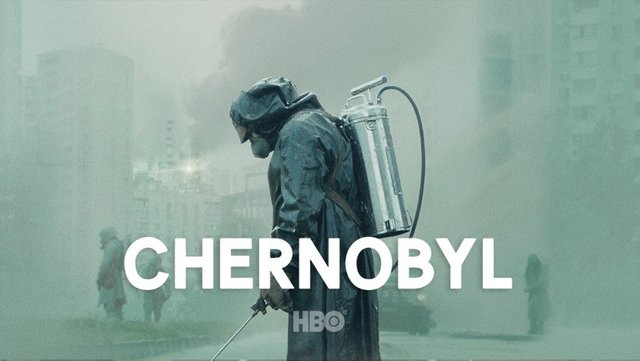
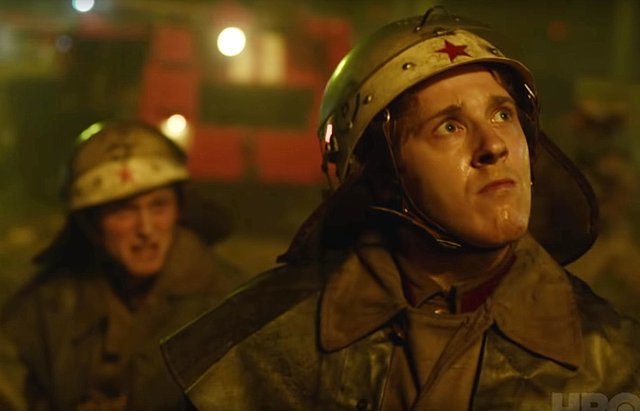
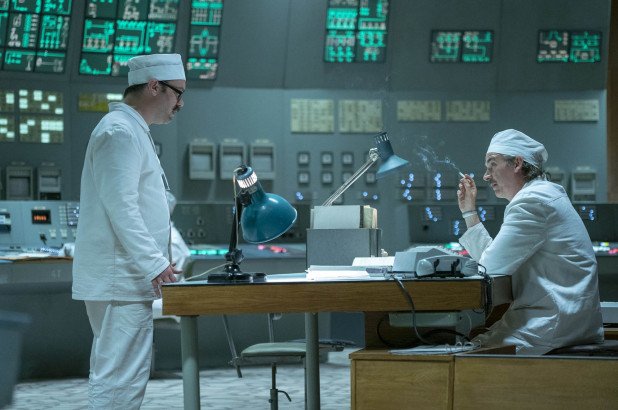
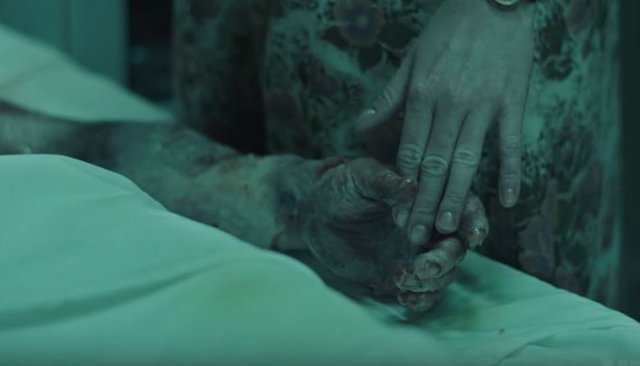
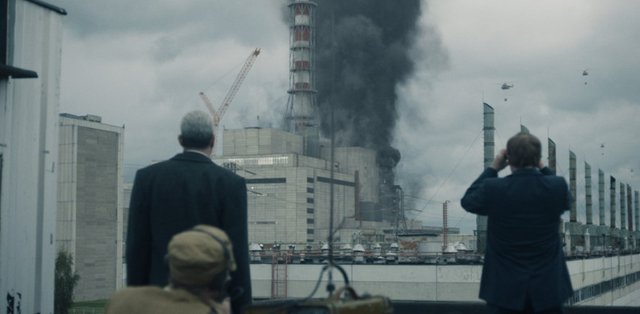
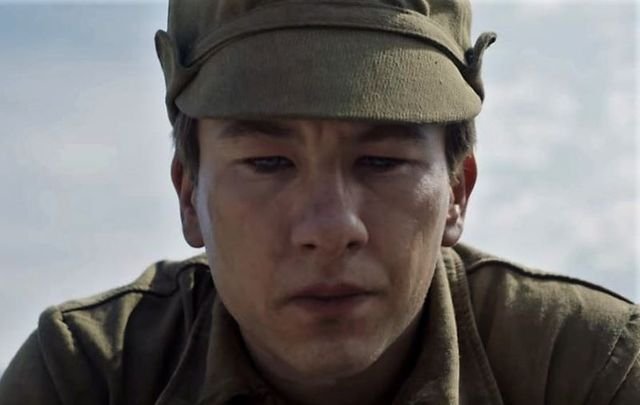
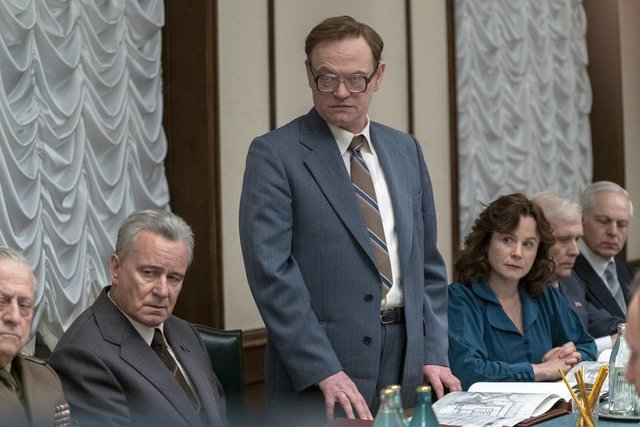
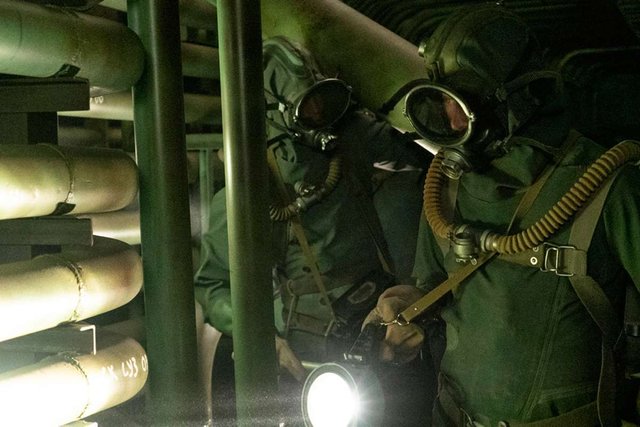
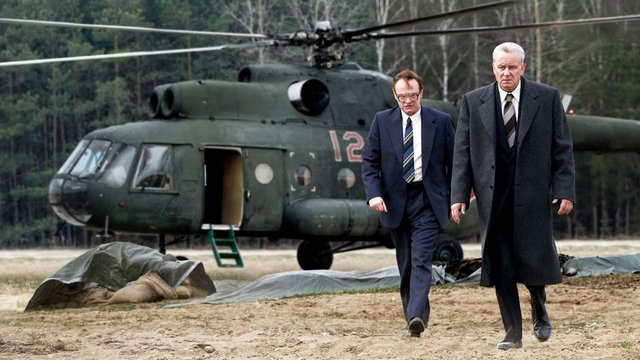
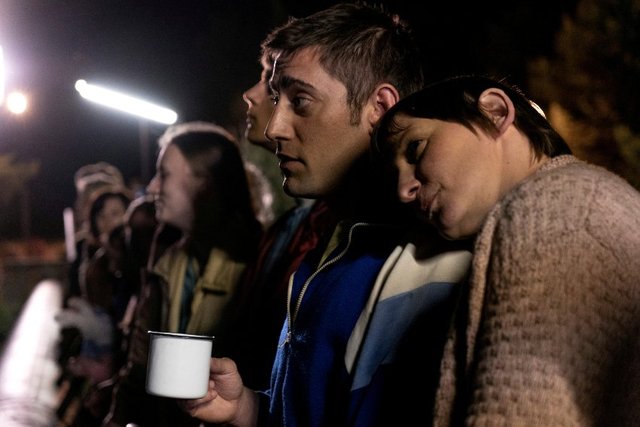
Thanks for a great post @anaerwu! It mirrored many of the same thoughts that went through my head after I finished watching Chernobyl.
While I think that it will probably do the perception of civilian nuclear power no favours, I think anyone paying close attention to what is actually going on on the screen will find that it is a drama about the bizarre monolith built on lies that was the Soviet system anno 1986 rather than an anti-nuclear piece. It is an interesting conundrum as to why a story where the outcome is given in advance can work dramaturgically, but I think it works exactly because the narrative is spun around a nuclear disaster and nuclear power, which already holds a certain mystique and sense of danger to most people, so while the outcome is given in advance, the story contains a lot of unknowns for the average viewer
Indeed, like you touched upon in your post too, the way Legasov speaks about nuclear power and the inner workings of the RMBK reactor in the last episode certainly has a poetic beauty to it :)
Yes, indeed this series shows a certain political system in which truth was the worst enemy and people who didn't follow orders and try to think independent from a wider perspective.
Thank you for stopping by and sharing your thoughts. Chernobyl as a mini-series is a masterpiece in certain aspects.
Posted using Partiko iOS
Congratulations! Your post has been selected as a daily Steemit truffle! It is listed on rank 1 of all contributions awarded today. You can find the TOP DAILY TRUFFLE PICKS HERE.
I upvoted your contribution because to my mind your post is at least 8 SBD worth and should receive 332 votes. It's now up to the lovely Steemit community to make this come true.
I am
TrufflePig, an Artificial Intelligence Bot that helps minnows and content curators using Machine Learning. If you are curious how I select content, you can find an explanation here!Have a nice day and sincerely yours,

TrufflePigThanks you for sharing a review of Chernobyl and your insight, @anaerwu.
You’ve just got a full upvote from us. Looking forward to reading your future posts!
Best Regards,
Blue Baikal
https://www.bluebaikal.io/en
✬ Join the contest at Blue Baikal and receive rewards! ✬
✬ --- Go to Blue Baikal --- ✬
This post is supported by $1.36 @tipU upvote funded by @cardboard :)
@tipU voting service: instant, profitable upvotes + profit sharing tokens | For investors.